
How Does Sleep Affect Skin Ageing?
June 4, 2025

Sleep plays a vital role in skin health and overall wellbeing. While we often associate skincare with topical products or in-clinic treatments, quality sleep is one of the most powerful—yet overlooked—factors in maintaining youthful, resilient skin.
This article explores the science behind the benefits of sleep for skin, how it affects ageing, and what you can do to support overnight skin regeneration naturally.
Why Is Sleep Important for Skin Health?
Getting enough quality sleep helps regulate key biological processes that are essential for skin repair, hydration, and cellular turnover. During deep sleep, your body increases the production of growth hormone, which supports the regeneration of collagen, elastin, and other structural proteins responsible for firm, healthy skin.
This is why people who consistently sleep well often experience a brighter complexion, fewer visible wrinkles, and more balanced skin texture over time.
What Happens to the Skin During Sleep?
While you rest, your skin shifts into recovery mode. Here’s what happens:
- Collagen synthesis increases, helping to maintain elasticity
- Cell turnover accelerates, aiding in the replacement of damaged or aged skin cells
- Blood flow to the skin improves, giving you that morning glow
- Hydration levels are rebalanced, while inflammation is reduced
All of these processes contribute to the skin’s natural overnight repair cycle.
Can Poor Sleep Make You Look Older?
Yes. Chronic sleep deprivation has been linked to several visible signs of premature ageing, including:
- Fine lines and wrinkles due to reduced collagen production
- Puffiness and dark under-eye circles caused by poor circulation
- Dull or uneven skin tone from impaired cell renewal
- Increased cortisol levels, which may contribute to skin inflammation and breakouts
Over time, a consistent lack of sleep can accelerate the appearance of ageing, especially when combined with other stressors such as sun exposure or poor nutrition.
How Many Hours of Sleep Does Your Skin Need?
Most adults require 7–9 hours of quality sleep per night to allow the body—and the skin—to undergo proper repair. Short or disrupted sleep patterns can interfere with this process, reducing the skin’s ability to recover from daily stress.
If you’re struggling with signs of fatigue on your skin, evaluating your sleep habits can be just as impactful as reviewing your skincare products.
Tips to Improve Sleep for Better Skin
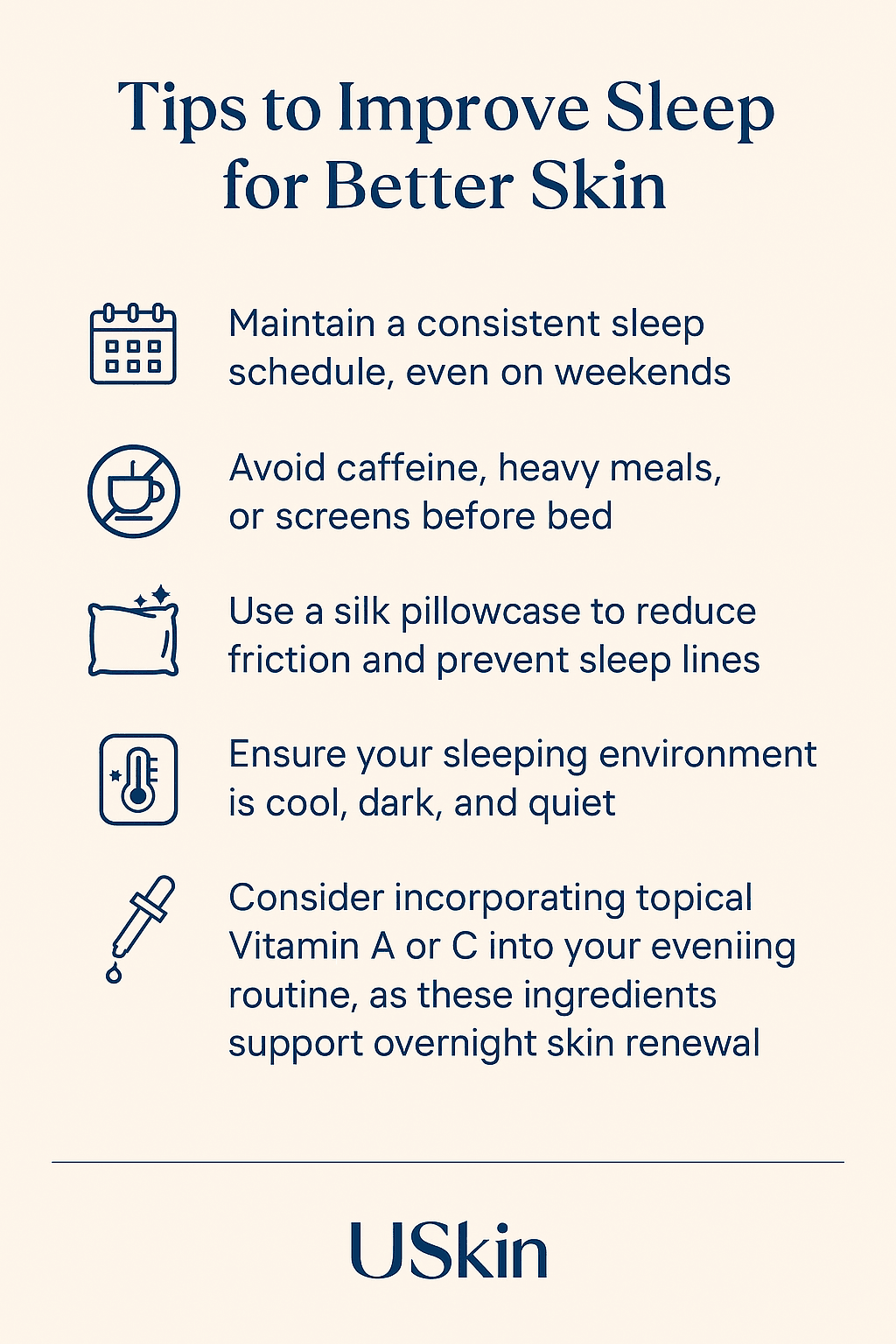
To optimise your sleep for skin health:
- Maintain a consistent sleep schedule, even on weekends
- Avoid caffeine, heavy meals, or screens before bed
- Use a silk pillowcase to reduce friction and prevent sleep lines
- Ensure your sleeping environment is cool, dark, and quiet
- Consider incorporating topical Vitamin A or C into your evening routine, as these ingredients support overnight skin renewal
Need help finding skincare that complements your lifestyle? Explore our skin rejuvenation treatments to support your routine.
Can Skin Treatments Help if You’re Sleep-Deprived?
Yes. While sleep is essential, certain skin therapies can support the visible signs of ageing caused by disrupted sleep. At USKIN Clinics, we offer evidence-based treatments that assist with:
- Skin hydration and texture improvement
- Fine line smoothing
- Collagen stimulation using techniques such as LED phototherapy or skin needling
These treatments do not replace good sleep but can help mitigate its effects on the skin.
Why Sleep Should Be Part of Your Skincare Routine
Sleep is a cornerstone of healthy ageing, supporting everything from collagen production to skin barrier repair. By prioritising your rest, you’re not only caring for your overall wellbeing but also investing in the long-term appearance and health of your skin.
If you’re concerned about how your lifestyle may be affecting your skin, our team can guide you through safe, personalised options.
Book a consultation with one of our clinicians at USKIN Clinics today to explore your options.
Disclaimer: This article is for educational purposes only. All treatments require consultation and assessment for individual suitability.
Similar Posts
How Collagen Loss Changes in Your 20s, 30s, and 40s

Collagen loss does not happen overnight. It’s a gradual process that starts earlier than most…
When Should You Start Collagen Banking?

If you’re thinking about collagen banking in Melbourne, the real question usually isn’t your age.…
Peptides vs Retinoids: Which Is Best for Anti-Ageing?
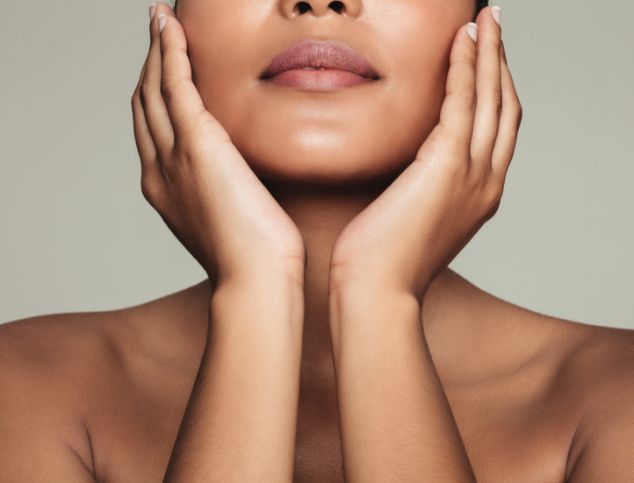
Peptides and retinoids are two of the most talked-about ingredients in anti-ageing skincare, but they…
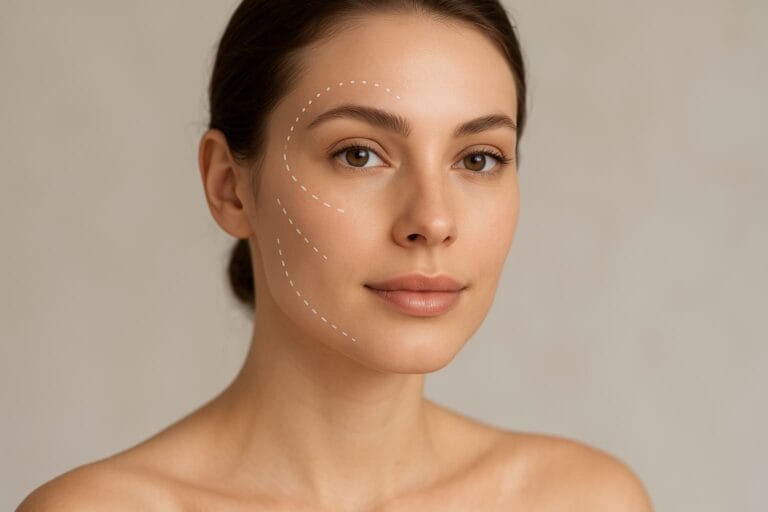

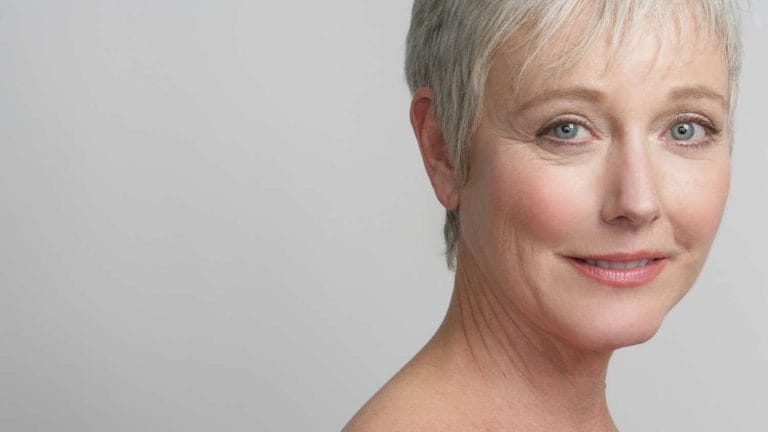

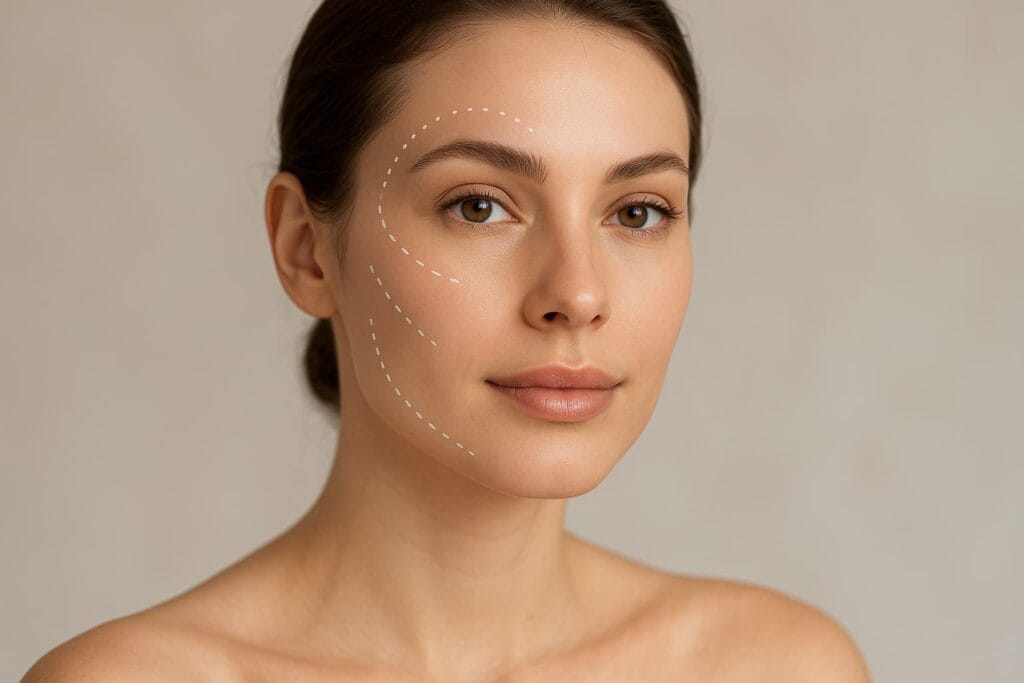
Leave a Reply
You must be logged in to post a comment.